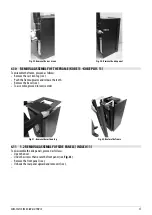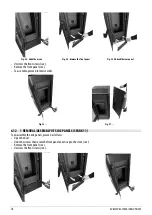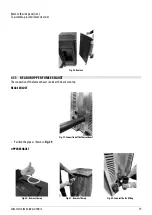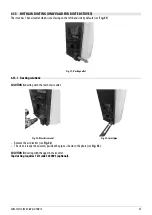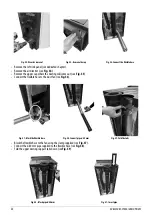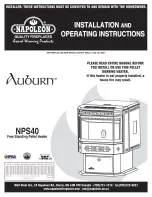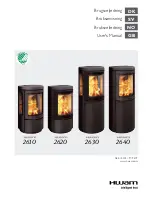
7
KOBE-FENICE-SPARK-INDACO-PRINCE
Fig. 5 - Anti-wind chimney pots
Fig. 6 - Reflux area
3.6
MAINTENANCE
• The fumes extraction pipes (fumes c chimney flue + chimney pot) must always be cleaned, scrubbed and checked
by an expert stove-repairer, in compliance with current regulations, with the instructions of the stove-manufacturer and the
directives of your insurance company.
• In case of doubts, please follow the most restrictive regulations.
• Have your chimney flue and chimney pot checked and cleaned by an expert chimney sweep at least once a week. The chimney
sweep has to release a written declaration about the security of the system.
• Not cleaning compromise safety.
4
COMBUSTION AIR
4.1
AIR INLET
It is mandatory to provide an adequate external air inlet that supplies the combustion air required for the product to work properly.
The flow of air between the outside and the installation room can take place with a free air inlet or by channelling the air directly
to the outside
(***)
.
The free air inlet must:
• be made at floor level;
• always be protected with an outer grille and in such a way that it cannot be obstructed by any object;
• have a minimum total free area of 80 cm
2
(net of the grille);
The presence of other suction devices (e.g.: vmc, electric fan for stale air extraction, kitchen hood, other stoves, etc.), in the same
room could cause negative pressure in the room. In this case, with the exception of sealed installations, one must verify that, with
all the equipment on, no more than 4 Pa of negative pressure is created inside the installation room with respect to the outside. If
necessary, increase the air inlet section.
It is possible to duct the air required for combustion to the outside by connecting the external air inlet directly with the combustion
air inlet which is usually found on the back of the appliance.
The duct must comply with the following dimensions (each 90° bend is equivalent to one linear metre):

















